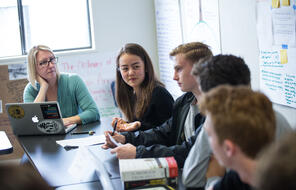Breadcrumb
This resource is part of:
Eboo Patel on Collaborating across Differences
At a Glance
Language
English — USSubject
- Civics & Citizenship
- Democracy & Civic Engagement
Eboo Patel on Collaborating across Differences
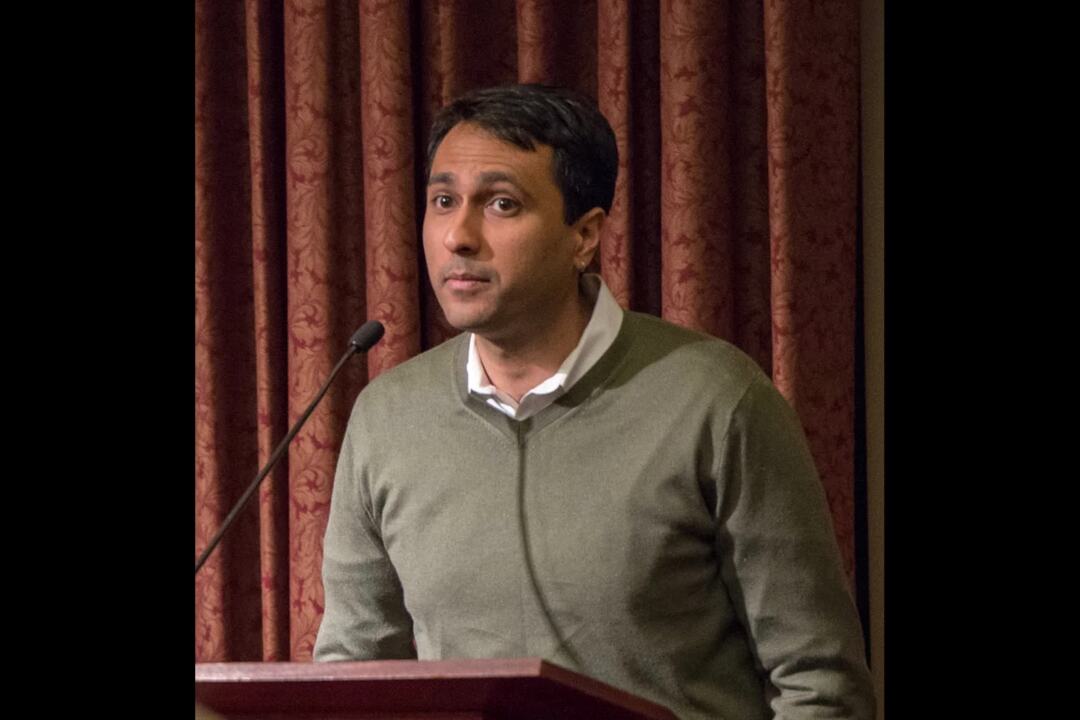
Hi. I'm Laura Tavares with Facing History and Ourselves. This week in our What Makes Democracy Work series, we're talking with Interfaith leader Eboo Patel. Eboo is the founder and director of Interfaith Youth Core, an organization with a mission to foster interfaith cooperation and religious pluralism among young people.
In his new book, Interfaith Leadership, Eboo discusses the skills and attitudes we need to collaborate across differences and work together for the common good, something he says is fundamental to a strong democracy. When we spoke, Eboo shared a question that has been on his mind and at the heart of his work-- what does it look like to build a healthy religiously diverse democracy?
My definition of democracy is not just a society in which people elect their representatives. It's a society in which people can make their personal convictions public. And diversity, I like to remind myself and my elementary school age kids who are in one of these schools where every classroom has a poster that says diversity is our strength and multiculturalism is beautiful, I like to remind them that diversity is not just the differences you like. It's also the differences you don't like. It's not just samosas and egg rolls and everything that tastes good.
And so if you're thinking about how do you have a diverse democracy, you are thinking about the question, how do you have a society in which people with a range of differences, including some that other people don't like are all able to make their personal convictions public? And if you add to that religion and if you think about how Paul Tillich, the great theologian, famously defined religion as ultimate concerns, you can see how this is, frankly, a recipe for significant tension and perhaps even conflict or violence.
Because you have a society in which people who have different and divergent views and matters of ultimate concern, everything from how are we created, for what purpose, what's a good life, what is morality, what happens after we die. People who have different and diverging views of those matters all get to make their personal convictions public.
So given that stew, so to speak, how do you make that kind of society healthy? And the best answer that we have to that question at Interfaith Youth Core, the answer that I offer in my new book, Interfaith Leadership, is that you have to be able to have the skill to disagree on some fundamental things and work together on other fundamental things.
I asked Eboo how he got to this insight, that what makes democracy work is the ability to disagree on some fundamental things but still work together on others. In response, he told the story of Ruth Messinger, a former president of the American Jewish World Service.
Ruth grew up in an observant Jewish family in New York City and graduated from Radcliffe College. In the mid-1960s, she ended up in Oklahoma, a long way from home, because her husband had been offered a job working as a government doctor there. This allowed him to avoid the draft to Vietnam, a war they both opposed.
In Oklahoma, Ruth trained as a social worker and got a job working to reform the inadequate and corrupt system of foster care and child welfare in Western Oklahoma. She set about trying to find better homes for children in need and in that process found allies in people with whom she had little else in common.
She has a new baby at the time. And so she's strolling this new baby in neighborhoods around her house. And she notices all these signs that say things like, church of our Lord who died for our sins, church of the holy blood of Jesus Christ, our Savior. And she would knock on the doors of these places thinking a leader lives here and a community gathers here and let me just tell them what I'm attempting to do.
And she would share her story about attempting to create higher quality foster care services. And the person who answered the door typically served as a house preacher or pastor of a kind and would invite her to the Thursday afternoon service or the Wednesday noon service or the Tuesday morning service. There was services going on every day of the week and every hour of the day in that part of the country.
And Ruth would show up. And she would listen to the sermon and this long service, much of which didn't cohere neatly with her urban Jewish progressive convictions. And at the end, the pastor kept his promise and said, we have a young lady in the back who'd like to share an opportunity to serve our Lord.
And Ruth would stand up. And she would tell the story about the plight of runaway kids in that part of the country and how decent foster homes were needed to take care of these kids. And Ruth is sharing this story with me.
And she's telling me how after the pastor let her speak, he would go back to this homemade pulpit. And he would say, this is what our Lord and Savior Jesus Christ demands of us right now-- to take care of these children. And he would read from the Bible. And he would say a prayer. And Ruth's like, the congregation would line up and sign their names as foster parents and as people who would open their homes to these troubled kids.
And it blew Ruth away. And I kept on asking her, what's the dim view of feminism in Western Oklahoma in the 1960s. And Ruth is like, if that's what I focused on, a bunch of kids wouldn't have foster homes. What did you think about the fact that these people were largely supportive of the Vietnam War, that they weren't crazy about women with educations, especially from places like Harvard and Radcliffe? What did you think about what they said about Jews and Judaism?
And in each kind of question, Ruth was like, look, there were times when things crossed the line. And I would have a conversation with the pastor about his misstatements about Judaism or women or education. But they were always polite. And they were meant to teach and not to disdain. But basically, I had to bracket a set of my fundamental convictions in order to accomplish this other fundamental conviction. And frankly, so did the pastor.
Eboo ended our conversation by pointing out that there are many Ruth Messingers. Despite the many differences and tensions in the United States where he lives and works, people are still able to work together for the common good.
American civil society and the vast majority of our institutions function with people who have very diverse, even divergent viewpoints on really important matters. I think that the deep strength of our society is that people can have strong personal convictions that they make public through all the politics and civic institutions and that they are able to come together in other kinds of settings and institutions in which other goods are at stake.
That should not be taken for granted in a highly diverse society, especially one that's religiously diverse, which is to say people have divergent views on ultimate concerns. And we need to keep on strengthening the muscles of that kind of interfaith work, that kind of interfaith leadership, and that kind of healthy religiously diverse democracy.
You can read more about Ruth Messinger's story and the work of the Interfaith Youth Core in Eboo's book, Interfaith Leadership, excerpted on our website and available from Beacon Press. Join us on social media with the hashtag #democracyandus to share your ideas about how we can collaborate across differences to make democracy work better today.
Eboo Patel on Collaborating across Differences
Interfaith leader Eboo Patel talks about what it takes to build a healthy, religiously diverse democracy.
You might also be interested in…
10 Questions for the Future: Student Action Project
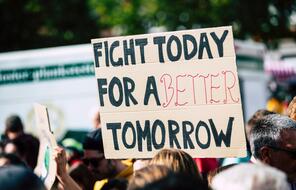
10 Questions for the Present: Parkland Student Activism
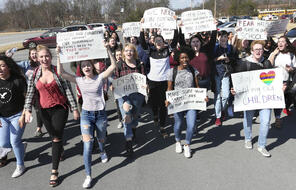
Standing Up to Hatred and Intolerance

#IfTheyGunnedMeDown
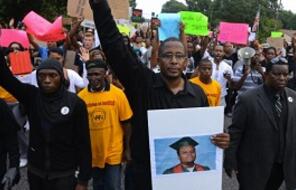
The Impact of Identity
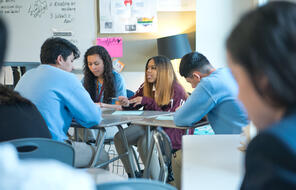
The Power of Images
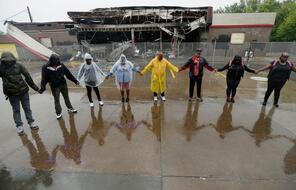
Preparing Students for Difficult Conversations
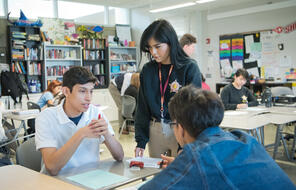
Social Media and Ferguson
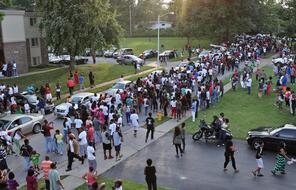
Verifying Breaking News

Facing Ferguson: News Literacy in a Digital Age

What Aspects of Our Identities Do We Show to Others?
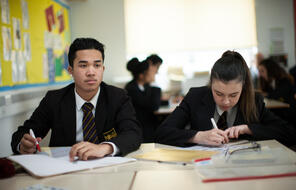
How Do Communities Define We & They?
